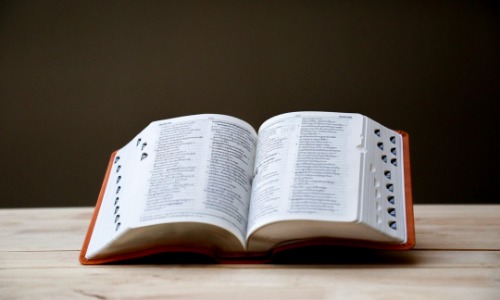This is some early bookstore research for a bunch of foreign language dictionary reviews. I went to two large bookstores (The enormous Half Price Books and the equally enormous Barnes & Noble in Dallas) and wrote down the names of pretty-much every dictionary they had in every language they carried, and also noted whether they included pronunciation information (and if so, whether it was IPA, some formal system (pinyin, romaji), some random system they invented, or some terrible English approximation [Bawn-JOOR]). I’ve tried to provide Amazon links to as many dictionaries as possible.
Here’s the info I’d like to add:
- More dictionaries
- Whether or not the dictionaries include examples of the words in use (sentences and their translations or translations of little, 2-4 word phrases)
- Any other features that might make you seriously consider one dictionary over any other.
If you have some of this info about one of the dictionaries I have listed here, or another dictionary you own, send me an email. I intend to keep updating this list with reader input. I’m using Amazon’s “Look inside!” function as much as possible, but it’s not always available. See the end of this postif you have a dictionary that isn’t on this list.
Foreign Language Dictionary Reviews
Index: Spanish | French | German | Italian | Portuguese | Russian | Chinese | Japanese | Korean | Arabic | Hebrew | Greek | Welsh | Finnish | Persian | Hindi | Swahili | Burmese
Spanish
Dictionaries with IPA transcriptions
None of these have many examples of the words in context, so if you have a dictionary you prefer on that front, let me know!
- The New World Spanish/English
- Barron’s Spanish-English Dictionary
- Barron’s Spanish-English Pocket Bilingual Dictionary
- Random House Spanish-English Dictionary
- Berlitz Spanish-English Dictionary (The tall blue version, not the smaller ones)
Dictionaries with phonetic information (not IPA)
These two dictionaries either use their own phonetic transcription methods or English approximations for Spanish (Cervantes = Serr-VAHN-tees). I find these confusing and misleading at best.
- Harper Collins College Edition (Some terrible in-house system)
- Easy Spanish Bilingual (Serrvahn-tees) 🙁
Dictionaries without any phonetic info at all
These dictionaries didn’t give you phonetic information. I suppose that this is acceptable for a very phonetic language like Spanish, but still, it seems like one of the basic functions of a dictionary to tell you how to pronounce an unknown word. Just for interest’s sake, I’ve noted whenever they’ve included phonetic transcriptions of the English half of the dictionary, and what sort of transcriptions they used for that. I’m hoping to eventually see some patterns across the major publishers.
- Mini Collins School Spanish
- Collins Spanish-English
- American Heritage 2nd Edition Spanish-English (English – Other)
- Oxford/Duden Pictoral Spanish-English
- Geddes & Grosset Spanish-English
- Random House Essential Spanish
- Langenscheidt Spanish-English (English – IPA)
- Oxford Pocket Spanish-English
- Oxford (Big) – (English – IPA)
- Webster New Explorer Spanish-English
- Cassell’s Spanish-English
- Webster’s Family Spanish-English (English – IPA)
- Webster’s (Tiny) G+
- VOX (English – Other)
- Collins Easy Learning Spanish-English
- Merriam Webster’s (w/ Latin American) (English – IPA)
- Longman Pocket Spanish-English (blue)
- Wordsworth Spanish-English
- U of Chicago (English – Very accurate IPA)
- Laxton Spanish-English
- Cervantes-Walls Spanish-English
- Collins Word-for-Word Spanish-English (Really not a fan of this one)
- Larousse Concise Spanish-English (English – IPA)
- Larousse Pocket Spanish-English (English – IPA)
- Larousse Pocket Student Spanish-English (English – IPA)
French
Dictionaries with IPA transcriptions
French has a great many dictionaries with IPA transcriptions. They’ve really embraced the IPA, perhaps because the IPA came out of Paris in the first place.
- Cassell’s French and English Dictionary
- Harrap’s Shorter French/English Dictionary
- Harrap’s French/English Dictionary (Large and blue)
- Collins Robert French Dictionary (I believe this link is the one I saw)
- The Oxford New French
- Routledge French Dictionary
- Barron’s French/English Dictionary
- Larousse Student (I liked this dictionary. Not comprehensive, but lots of examples of usage)
- Larousse Pocket Student
- Collins French Concise
- Merriam-Webster French/English Dictionary
- The Wordsworth French/English Dictionary
Dictionaries without any phonetic info at all
These dictionaries didn’t give you phonetic information. This seems ridiculous for French. Even if you learn all of the spelling rules, you still need to know whether certain final letters are pronounced, at the very least. I’d avoid these unless you needed something special (I could see a specialized business dictionary being useful, but still, the lack of phonetic info is pretty lame)
- Collins Easy Learning
- Collin’s Beginner’s French (White medium-size)
- Harrap’s French-English Business
- Oxford-Duden Pictorial
- Oxford School
- Cassell’s Beginner’s Dictionary
German
Dictionaries with IPA transcriptions
- Oxford-Duden
- Concise Oxford-Duden
- Collins Concise (Careful here; the normal edition of Collins German/English doesn’t have any phonetic info. I’m fairly confident that this links to a new edition same one I saw)
- Langenscheidt
- Berlitz (I’d avoid buying German Berlitz dictionaries online, only because they have so many different dictionaries with different content in each one. The one I saw with IPA was relatively large, and seemed like a fine dictionary, but I saw two different pocket Berlitz dictionaries, one without any phonetic info (blue, short and thick) and another (taller/thinner) with some terrible in-house transcription system)
Dictionaries without any phonetic info at all
These dictionaries didn’t give you phonetic information. German has reliable phonetic rules, but the same argument for Spanish holds here. What are dictionaries for, if not to give you all the info you might want on a word?
- Collins German (Names only in IPA)
- Larousse (English – IPA)
- Pocket Oxford-Duden (English – IPA)
- Everyday, McGraw Hill (English – IPA)
- Collins German (Compact) (English – IPA)
- Cassell’s
- Oxford Berkley Reference (Brown) (English – IPA)
- Mirriam-Webster (small) (English – Other)
- Webster’s New Word (Names in IPA)
- Oxford Mini (English – IPA)
- Berlitz Pocket (Stout, thicker blue version)
Italian
Dictionaries with IPA transcriptions
- Collins Italian College Dictionary
- Webster’s New World (Has IPA and little phrases [e.g., abuso…di potere – abuse of power]. I was fairly impressed with this one.)
- Hippocrene Italian Dictionary
- Collins Italian Pocket Dictionary in Color
Dictionaries with phonetic information (not IPA)
These were a mixture. Italy hasn’t embraced the IPA because their language is already very phonetic, but there’s still some information missing (namely whether zz is pronounced [ddz] or [tts] and whether stressed O’s and E’s are open or closed vowels). Some dictionaries have come up with their own ways of notating these two phonetic features that aren’t clearly shown in the original Italian word. This seems fine to me (except for the World-Wide Fawcett)
- Penguin Concise (A few useful small markings)
- Collins Zanichelli: Il Ragazzini (A few useful small markings)
- World-Wide Fawcett (Terrible transcriptions)
Dictionaries without any phonetic info at all
These dictionaries didn’t give you phonetic information. As mentioned above, you need some phonetic info in Italian, so I don’t really understand why you’d make a dictionary without it. Boo.
- Collins Beginners Italian (Medium white)
- Langenscheidt (Tiny) (English – IPA)
- Berlitz Compact (medium blue)
- Berlitz (Tiny) (English – IPA)
- Oxford New (Medium green) (Only stress markings)
Portuguese
Dictionaries with IPA transcriptions
- Oxford Portuguese Minidictionary
- Larousse Mini Dictionary
- Larousse Pocket Dictionary
- Larousse Concise Dictionary
- Langenscheidt Pocket Dictionary Portuguese
Dictionaries without any phonetic information
- Berlitz Pocket (blue) (English – IPA)
- Random House Webster’s
Russian
Dictionaries with phonetic information (not IPA)
Russian has not embraced the IPA at all, but they have a very phonetic alphabet, and there don’t seem to be any other options, so for now, you’re kind of stuck. (If someone has found a Russian dictionary with pronunciation info, please let me know!) All dictionaries do provide stress information, which is the main thing you need to accurately pronounce a word, once you’ve internalized the alphabet and the phonetic rules of Russian.
- Harper Collins (Slim pickings on Amazon! This is a major publisher, so I’m not sure why…)
- Langenscheidt (English – IPA) (Sort of skimpy, one-word definitions)
- Pocket Oxford (blue) (English – IPA)
- Concise Oxford (Provides a fair bit of info on word forms, perfective/imperfective verb pairs, etc. I’d go for this one of the group I’ve seen)
- New Russian-English Dictionary (Dover Dual Language Russian)(This one is cool for the English section; every English word is written out in Russian letters as a sort of phonetic transcription of the English. The Russian content is relatively good, although I like the feel of the Concise Oxford better)
- Katzner (This is a solid contender for the #1 slot here. Has some in depth explanations and the English-Russian section is one of the best I’ve seen)
Chinese
Dictionaries with phonetic information (not IPA)
Chinese dictionaries tend to use Pinyin transcriptions, which are nice and standardized.
- Harrap’s Pocket Chinese-English Dictionary
- Oxford Chinese Mini
- Collins Concise (English – IPA)
- Wiley Pinyin Chinese-English
Japanese
Dictionaries with phonetic information (not IPA)
Japanese dictionaries tend to use Romaji transcriptions, but there are a few different Romaji transcription methods, so you’ll see the same word written in a few different ways. The first 4 seem to mostly contain 1-word definitions.
- Tuttle Concise Japanese Dictionary
- Collins Pocket Japanese Dictionary
- Random House Japanese-English Dictionary
- Webster’s New World Japanese Dictionary
- Kodansha’s Furigana Japanese Dictionary (This one is really neat, if expensive; the pronunciation is written in one of the Japanese syllabaries instead of Romaji, and each word has a good amount of info around it.) [Not in the bookstores I visited]
Dictionaries without any phonetic information
- Oxford Beginner Japanese Dictionary
Korean
Dictionaries with phonetic information (not IPA)
Korean dictionaries tend to use various transcription methods, which don’t seem particularly standardized, but also don’t seem particularly terrible or misleading.
- Berlitz Compact Korean Dictionary
- Periplus Pocket Korean Dictionary (lots of single word definitions)
- Tuttle Learner’s Korean-English Dictionary (Yes! Fully translated example sentences, phonetic transcriptions. Great dictionary)
Arabic
Dictionaries with IPA transcriptions
There was only ONE dictionary in the two stores I visited with IPA info for Arabic, and I cannot find the same edition on Amazon! It was a small blue Collins dictionary, and I believe that it’s an earlier edition of this one. If anyone can confirm, please let me know:
Dictionaries with phonetic information (not IPA)
- Periplus Pocket Arabic (They use their own in-house transcription method)
- The Hans Wehr Dictionary of Modern Written Arabic (This seems to be the dictionary of choice on Amazon. Fine in-house transcription method, pretty good explanations.) [Not in the bookstores I visited]
Dictionaries without any phonetic information
- Oxford Essential
- Concise Oxford (Strange choices here: There was no way to look up a word in Arabic)
- Hippocrene Standard (And here there was no way to look up a word in English.)
Hebrew
Didn’t find much, and what I found wasn’t particularly impressive. Would appreciate recommendations here. Honorable mention: The Oxford English-Hebrew dictionary only goes in the English–>Hebrew direction, but it does have a large number of example sentences. Not bad.
Dictionaries with phonetic information (not IPA)
- Webster’s New World Dictionar (Some odd, confusing transcription method)
Dictionaries without phonetic information
- Ben Yehuda’s Pocket Dictionary
Greek
In sore need of resources here! Just one dictionary in the two bookstores, and it’s not particularly good.
Dictionaries without phonetic information
- Pocket Oxford
Welsh
Dictionaries without any phonetic information
No phonetic info on any individual words. Lame. You’ll need to rely on pronunciation guides.
- Oxford Modern Welsh Dictionary (Actually pretty neat dictionary, except for the lacking pronunciation info. Lots of examples.) [Not in the bookstores I visited]
- Teach Yourself Welsh Dictionary (meh)
- Essential Welsh Dictionary (meh)
Finnish
Dictionaries with phonetic information (not IPA)
Slim pickings for Finnish. One Langenscheidt dictionary with HEER-teh-hee-nehn type transcriptions.
Persian
Dictionaries with phonetic information (not IPA)
Slim pickings for Persian, too. One Hippocrene concise dictionary with some odd, relatively confusing transcription method.
Hindi
Dictionaries with phonetic information (not IPA)
- Hippocrene Hindi-English dictionary (This one seemed fine, if a little concise. Relatively straightforward transcription method and short definitions)
Swahili
Slim pickings. Let me know if you know of something better.
Dictionaries without phonetic information
- Awde’s Practical Swahili Dictionary (Lots of 1 word definitions, no phonetic info)
- Teach yourself essential Swahili dictionary (Lots of 1 word definitions, no phonetic info)
Burmese
Dictionaries with phonetic information (not IPA)
- Periplus Pocket Burmese (This used a relatively straightforward transcription method. A fine, basic (+ short) dictionary)
That’s it for now. This is what you might expect to find in a well-stocked bookstore. If you have a language that isn’t on this list (or towards the end of this list), you’re likely going to have to shop online, which is a pain for dictionaries, because there’s such a wide variety in terms of quality and content. If you own a dictionary that isn’t on this list, I’d love to add it! Send me the following info:
- What sort of phonetic info (if any) does it include? I’m making a distinction between relatively straightforward transcription methods like Romaji/Pinyin, confusing transcription methods with lots of inexplicable symbols for no clear reason, and totally misleading transcription methods based on English (Bawn-JOOR). There aren’t really clear lines between these three categories, just let me know your impressions.
- How’s the quality of the definitions? Lots of 1-word definitions? Phrases? Whole translated example sentences?
- Does it go in both directions? (English-French and French-English)
- Where’d you find it?





